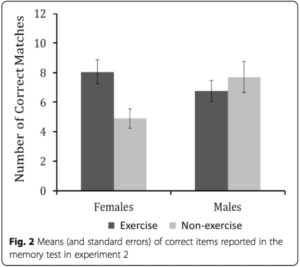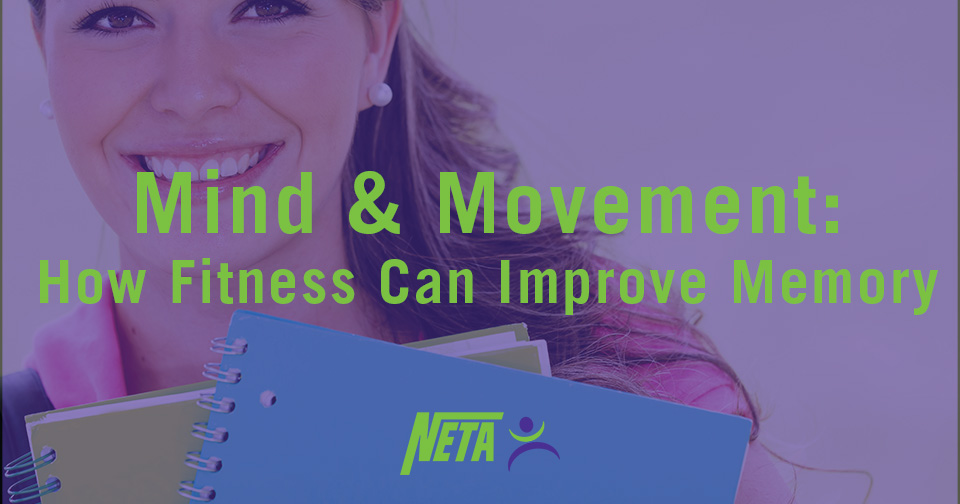As fitness professionals, we are well aware of the many benefits exercise provides beyond burning calories. A good exercise program can help your clients meet their goals and feel better all-around, whether those goals involve sculpting a 6-pack, lowering stress levels, improving their mood, getting more restful sleep or training for an upcoming event. But new research suggests we can add improved memory to that list — at least for women.
As we get older our brains seem to have a harder and harder time not only retaining old memories, but also making new ones—as anyone who’s forgotten where they parked the car can tell you! But a new study indicates that exercise may be the answer for forming and retaining those new memories.
Because memories consolidate over time, what we experience after learning can influence what we actually end up remembering. In the experiments conducted by a joint team of psychology researchers from the US and Australia1, women who did 5 minutes of low-impact exercise immediately after learning showed better recall than those who didn’t exercise.
For the experiment, the male and female subjects were shown a series of faces and their corresponding names. They were told they would be asked to recall the face-name pairings the following day. Then, subjects were split into two groups: the first completed 5-minutes of step exercise on a 6.5” step after their learning, while the second completed 5-minutes of quiet activity, such as playing with building blocks.
The following day, each participant was asked to recall the name that went with the faces they had seen the previous day. Among the male participants, the difference between the exercise group and the non-exercise control group was very minimal, with an average of one more correct answer among the exercisers. However, among the women, the recall from the exercise group was more than double that of the control group — recalling on average 10 of the 12 names, whereas the control group recalled on average only 4! The male participants demonstrated better recall than the females in the control group, but very little increase after exercise.

So, what do these findings mean for the fitness community? Well, for our female clients, it means another benefit to add to the list. It may even mean that for some of our clients, we should consider creating fitness plans based on their learning schedules. For instance, a college or graduate student may benefit from completing a workout immediately following a class or a study session. In the classroom, this research is useful evidence against reducing recess time or gym classes among younger students. And for anyone who needs to improve his or her memory, it’s yet another reason to create and stick to a fitness plan.
How do your clients most benefit from their fitness regimens? Any unique goals you’re helping them to meet? Share your favorite stories below!
¹Most, S.B., Kennedy, B.L., & Petras, E.A. (2017). Evidence for improved memory from 5 minutes of immediate, post-encoding exercise among women. Cognitive Research: Principles and Implications, 2(1), 33.

